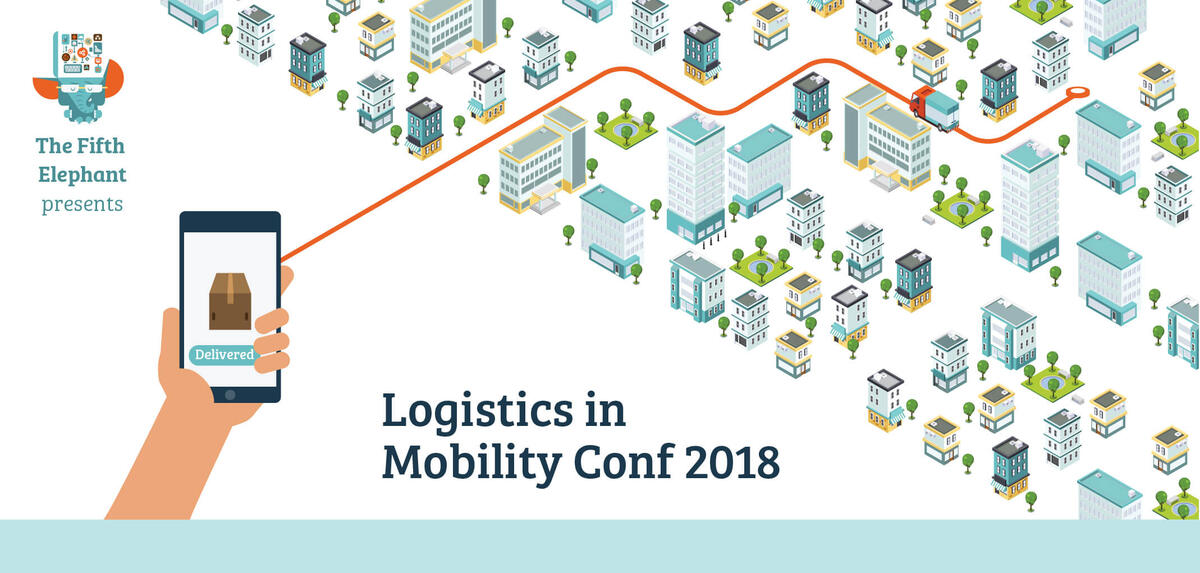
Nov 2018
19 Mon
20 Tue
21 Wed
22 Thu
23 Fri
24 Sat 09:00 AM – 06:35 PM IST
25 Sun
Abhishek Balaji
@booleanbalaji Proposing
Submitted Oct 5, 2018
Mobility is a major concern in many Indian cities, due to inadequate transport infrastructure, increased usage of private vehicles, traffic congestion, pollution and lack of integration between land use and transport planning thus, undermining the cities’ efforts to meet global standards of living.
Recently, liveability has received more importance due to the degrading condition in the quality of life in metropolitan cities. Recently, the Government of India has also formulated 79 indicators in 15 categories in order to measure the liveability standards of 116 Indian cities focusing on four main aspects such as institutional, social, economic and physical that affects the quality of life.
The aim of this work is to propose methodology to develop and evaluate sustainable transport measures that improves the liveability of Indian cities. Bengaluru Metropolitan Region (BMR) which includes Bengaluru urban district, Bengaluru rural district and Ramnagara has been taken as the case study.
The quantitative evaluation of sustainable transport mitigation and adaptation measures aimed to improve the liveability of Bengaluru in terms of; reduced traffic congestion (VKT), reduced exhaust emissions (PM, CO, NOX, HC etc.), reduced greenhouse gas emissions (CO2), reduced carbon emission intensity w.r.t. GDP growth, increased consumer surplus of sustainable modes, and also improved resiliency of transportation system will be discussed in detail. The same was done by comparing the Business as Usual scenario and various sustainable transport scenarios, for the base year and the future years 2030 and 2050.
It is expected that the findings of this paper will provide more scientific and evidence based decision support for framing right kind of sustainable transport planning and policy measures to make Bengaluru more liveable. Also, the basic principles and developed methodology from this study can be applied to other Indian cities as well to develop similar measures aimed at improving their liveability.
Dr. Ashish Verma is a Ph.D. from IIT Bombay and currently serving as Associate Professor of Transportation Engg. at Dept. of Civil Engg., Centre for infrastructure, Sustainable Transportation, and Urban Planning (CiSTUP), and Robert Bosch Centre for Cyber Physical Systems (RBCCPS) at Indian Institute of Science (IISc), Bangalore, India. Further, he was a Visiting Professor at ITMO University, Saint Petersberg, Russia during 2016.
Before joining IISc, he has served in IIT Guwahati, and Mumbai Metropolitan Region Development Authority (MMRDA). His research interests are in; sustainable transportation planning, integrated public transport planning and management, modeling and optimization of transportation systems, travel behaviour, driver behaviour and road safety, intelligent transportation system (ITS), traffic management etc. He has authored more than 120 research publications in the area of sustainable transportation and road safety.
He has also authored a book on “Public Transport Planning and Management in Developing Countries” along with Prof. T.V.Ramanayya (Retd. Prof. IIM Bangalore), published by CRC Press and also another book on "Integrated Public Transportation System – Planning and Modelling”, published by VDM Publishing House Ltd. He is Editor of the journal ‘Transport Policy’, Elsevier; Associate Editor of ‘Urban Rail Transit’, Springer; and editorial board member of other leading international journals of Elsevier, Springer, American Society of Civil Engineers (ASCE) and other publishers. He is the Founding and Current President of the society Transportation Research Group of India (TRG). He is presently serving as, Vice Chair (Conference) of Scientific Committee, and Steering Committee Member of World Conference on Transport Research Society (WCTRS) based in University of Leeds, UK. He is also Co-Chair of Special Interest Group (SIG) H3 and G6 of WCTRS, which are focused on transportation in developing economies and disaster resilience.
He has been recently nominated by the Government of Karnataka as Member of the state level task force on mobility. His recently concluded study CLIMATRANS has provided a clear vision for implementing transport policies for mitigation and adaptation that will make Bangalore city more livable.
More details about him can be seen on his home-page http://civil.iisc.ernet.in/~ashishv/.
{{ gettext('Login to leave a comment') }}
{{ gettext('Post a comment…') }}{{ errorMsg }}
{{ gettext('No comments posted yet') }}